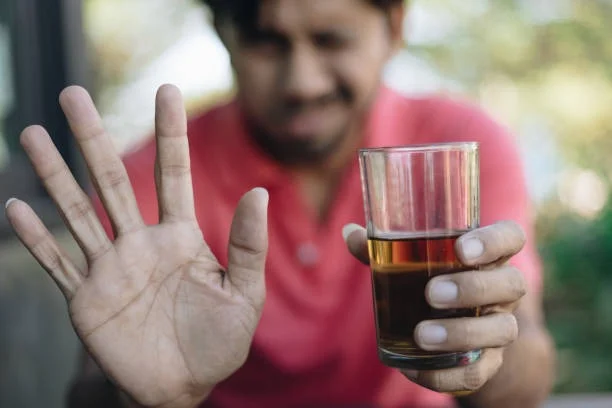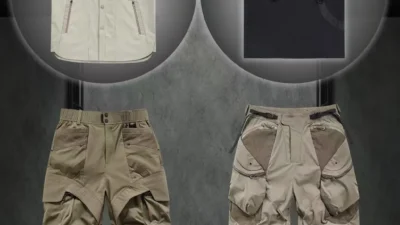There’s this thing alcohol does that people don’t talk about enough. It convinces you it’s part of your personality. Like the edge in your sarcasm, the reason you’re fun at parties, the only way you can finally sleep through the night. It doesn’t crash into your life all at once—it slowly seeps in, weaving itself into the gaps and convincing you they were always there.
You tell yourself it’s manageable. You’re not waking up on sidewalks. You’re paying your bills. So you can’t possibly have a problem, right? But somewhere along the way, the drink became less of a choice and more of a given. A reflex. A default. And eventually, you start to realize it’s not just the hangovers that are getting harder to shake—it’s everything else. The restlessness. The guilt. The hollow feeling that follows a buzz and sticks around longer every time.
The Lie That You Still Have Control
Alcohol doesn’t always show up as some catastrophe. Sometimes, it’s just a slow, low-grade erosion. You’re still meeting deadlines, laughing at dinner, helping your kid with homework—but underneath that, there’s a steady hum of discomfort you keep numbing before it gets too loud. That’s where it hides.
There’s also this nagging need to compare. You look around at friends who drink more. Or you bring up that one guy who lost everything and say, “That’s not me.” As if the only metric for addiction is total collapse. But the real damage happens long before that. It happens in the hours you lose to brain fog. The tension in your chest after every argument you only half remember. The way your self-respect gets chipped down every time you promise to “take it easy” and don’t.
The problem with drinking isn’t just about how much—it’s about the reasons behind it. When you’re using alcohol to fix things it was never designed to handle, like grief or boredom or shame, it’s already taken more than you think. And the longer you let it stay, the more it convinces you it’s the only thing keeping your life from unraveling.
The False Comfort of Routine
Alcohol is subtle until it’s not. It becomes your Friday reward, your nightly reset, the only way to relax when the world won’t shut up. And if anyone challenges it—even gently—you get defensive. You’re just stressed. You deserve it. It’s not like you’re drinking in the morning.
But when you zoom out, you start to see how much effort goes into keeping it “under control.” You map out which nights you’ll drink, how many drinks won’t raise eyebrows, what you’ll say if someone notices. The mental gymnastics alone could qualify as a second job.
Weekend drinking becomes the highlight of the week. You tell yourself it’s social. It’s just fun. But Monday rolls around and your body feels wrecked, your brain’s in a fog, and your patience is shot. You’re not bouncing back the way you used to. You’re not even pretending to. And slowly, that weekend habit starts bleeding into the rest of your life.
This isn’t about shame. It’s about paying attention. When alcohol moves from occasional treat to emotional crutch, it’s not helping anymore. It’s dragging you.
Who Are You Without It?
One of the biggest myths about quitting alcohol is that you’ll become someone else entirely. That without booze, you’ll be dull or rigid or unable to connect with people. But the real truth is, alcohol actually flattens you. It dulls more than your anxiety—it dulls your clarity, your intuition, your ability to notice the finer textures of life.
If you’ve been drinking heavily or often, you’ve probably forgotten what it’s like to trust yourself. To walk into a room and not feel like you need something in your hand. To navigate awkward conversations without buffering your personality first. That kind of confidence isn’t loud or showy—it’s grounded. And it can’t be manufactured in a bottle.
There’s something genuinely surprising about what happens when people stop drinking. They get sharper. More honest. Sometimes messier—but in the best possible way. Because when you’re not numbing everything, you start to feel things again. You also get your time back. Your mornings. Your focus. Your peace.
What Getting Help Actually Looks Like
If you’ve reached the point where alcohol is making decisions for you, there’s no shame in stepping back. And if doing it alone hasn’t worked—whether that’s moderation or abstinence—it doesn’t mean you’re weak. It just means you’re not meant to fix this in isolation.
There’s help out there that doesn’t come with judgment or cold institutions. Not all recovery looks the same. There are programs built for people who don’t want to disappear from their lives, who need to keep showing up at work or caring for their families while getting their drinking under control. You don’t have to disappear into the woods for 30 days unless that’s something you want.
Sometimes all it takes is finding a place that meets you where you are. A place that doesn’t demand perfection or shame you for slipping, but helps you untangle what drinking’s been doing in the background. That could be alcohol rehab in Madison, Nashville or anywhere in between, depending on where life has taken you. What matters isn’t the location. It’s that you go.
Recovery isn’t about fixing yourself. It’s about remembering who you were before alcohol took the wheel—and growing past that point, too.
A Better Kind of Freedom
There’s no dramatic soundtrack when someone quietly decides to get sober. No flash of enlightenment or movie-style montage. Usually, it’s just a quiet decision made on a tired morning, or a sudden moment of clarity in a liquor store parking lot. It’s small and human and real. But that’s where change starts.
Life without alcohol isn’t smaller. It’s just clearer. You get your brain back. Your peace back. You start sleeping for real. You stop second-guessing everything you said or did the night before. And you start finding out what you’re actually capable of when you’re not trying to outrun yourself.
You don’t have to know how it’s all going to work out. You just have to start moving in a different direction.
No One’s Meant To Stay Stuck
You don’t need to hit bottom to climb out. That’s just another story alcohol likes to tell. You’re allowed to want more for yourself before things fall apart. You’re allowed to step away from something that’s stealing your energy, even if it hasn’t burned everything down.
The exit isn’t dramatic. It’s practical. It’s a bunch of ordinary days where you make slightly better choices, and they start to add up. And eventually, the fog clears. You find the quiet again. And in that quiet, you remember that you’ve always been more than the person holding the drink. You just forgot for a while.

Lexy Summer is a talented writer with a deep passion for the art of language and storytelling. With a background in editing and content creation, Lexy has honed her skills in crafting clear, engaging, and grammatically flawless writing.



